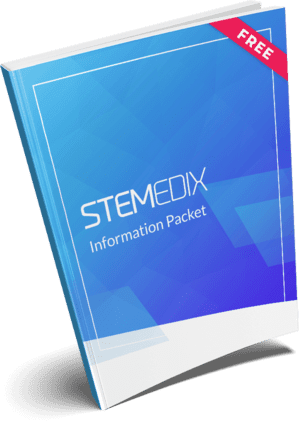
by admin | Feb 5, 2021 | ALS, Mesenchymal Stem Cells, Stem Cell Research, Stem Cell Therapy
Amyotrophic lateral sclerosis (ALS), also known as motor neuron disease or Lou Gehrig’s disease, is a disease that gradually paralyzes people because the brain is no longer able to communicate with the muscles of the body that we are typically able to move at will[1]; as ALS progresses, people will lose the ability to walk, talk, swallow, and eventually breathe.
While no treatment to prevent or even slow the progression of, ALS currently exists, recent findings indicate that neurotrophic factors (NTFs) have been shown to potentially improve the survival of motor neurons in ALS. While a single administration of NTFs has not been effective in extending the life of these motor neurons, the review suggests the direct delivery of multiple NTFs by transplantation to the CNS has proven effective in animal studies.
Specifically, the observed benefits of mesenchymal stem cells (MSC) transplanted from bone marrow or adipose suggest improved neurological stabilization in patients with ALS. As such, the authors of this review have developed a method that produces a strong synergistic effect when introducing a combined delivery of neurotrophic factors in patients with ALS.
The authors, in this review, report on the safety and clinical effects resulting from phase 1 / 2 and 2a clinical trials in which autologous MSC-NTS cells were transplanted in patients with ALS. Both of these studies were considered open-label proof of concept studies where patients were followed up for 3 months before transplantation and 6 months after receiving MSC-NTS transplantation.
No serious adverse events were associated with MSC-NTF cells intramuscular (IM) injections, intrathecal injections (IT), or a combination of both (IT+IM) during these studies.
Additionally, neurotrophic growth factor secretion of patients’ cells was shown to be induced in the MSC-NTF cells when compared to MSCs of the same patient prior to differentiation. In all samples, MSC-NTF cells demonstrated increased secretion of NTFs when compared to non-differentiated MSCs from the same patient.
As a result of this study, the authors have concluded that IT and IM injections of MSC-NTF cells in patients with ALS are safe and well-tolerated. While not the primary focus of the study, the findings also demonstrated clinically meaningful benefits specifically induced by intrathecal treatment with MSC-NTF cells, including potentially slowing the rate of ALS progression.
Considering that neurologists specializing in the treatment of ALS consider a reduction in ALS-FRS-R slope of 25% or more to be clinically significant, the change in ALS progression rate observed after MSC-NTF cell transplantation in this study may indicate a clinically meaningful effect to be confirmed in future clinical trials.
Source: (n.d.). Safety and Clinical Effects of Mesenchymal Stem Cells Secreting …. Retrieved from https://pubmed.ncbi.nlm.nih.gov/26751635/
[1] “Amyotrophic lateral sclerosis (ALS) – Symptoms and causes – Mayo ….” 6 Aug. 2019, https://www.mayoclinic.org/diseases-conditions/amyotrophic-lateral-sclerosis/symptoms-causes/syc-20354022. Accessed 15 Feb. 2021.

by admin | Oct 6, 2020 | ALS, Stem Cell Research, Stem Cell Therapy
ALS, which stands for amyotrophic lateral sclerosis, is a neurodegenerative disease that has no cure and no substantially effective treatment. Today, there are two drugs available that can slow the progression of ALS— riluzole and edaravone—but these agents may only be modestly effective. Sadly, patients with ALS get progressively worse, sometimes even with treatment. They lose to ability to move, to swallow, and to breathe. It is a devastating disease.
As with other neurodegenerative diseases, researchers are trying to treat ALS with stem cells. Stem cells have the capacity to become other types of cells such as neurons or glia. The notion is that stem cells could be used to rescue and replenish the nerve cells that are dysfunctional or destroyed in ALS. Studies are emerging that suggest that these approaches may bear fruit.
One such stem cell trial comes out of India, published by Dr. Prabhakar and colleagues. The research scientists infused autologous bone marrow-derived stem cells (autologous means the cells were retrieved from the patient and then readministered to the same patient). The scientists conducted the clinical study in ten patients with ALS who had a mean revised ALS Functional Rating Scale score of 30.2 ± 10.58. In other words, patients with this score have about a 60 to 70% chance of being alive for 9 more months.
Impressively, patients treated with autologous bone marrow-derived stem cells did not have a significant reduction in ALS Functional Rating Scale score after one year, which means their disease stayed relatively stable over this time instead of deteriorating. It took about 16.7 months for the score on this scale to drop by 4 points, which is considered a significant drop. The median survival after the procedure was 18.0 months, which is substantially more than would have been expected at the start of the study.
Taken together, these results suggest that patients with moderately severe ALS enjoyed a stabilization of their ALS symptoms for over 16 months on average. While there was no placebo control group, the stem cell-treated patients survived about twice as long as was estimated at the start of the trial.
These positive results must be confirmed in a larger, placebo-controlled trial. However, they strongly argue for further research of stem cells for the treatment of amyotrophic lateral sclerosis.
Reference: Prabhakar S, Marwaha N, Lal V, Sharma RR, Rajan R, Khandelwal N. Autologous bone marrow-derived stem cells in amyotrophic lateral sclerosis: A pilot study. Neurol India 2012;60:465-9

by admin | Jul 30, 2020 | ALS, Stem Cell Therapy
Amyotrophic lateral sclerosis is a cruel disease. It causes the nerves that control muscles to die. When these upper and lower motoneurons degenerate, it causes weakness, muscle atrophy, muscle cramps, and twitching. Patients with progressed ALS lose the ability to walk and to move, and ultimately lose the ability to swallow and to breathe.
Unfortunately, there is no cure for this disease. Two drugs, riluzole, and edavarone, can help slow the progression of amyotrophic lateral sclerosis; however, these treatments cannot stop the disease.
Stem cells are an intriguing potential option for those wanting to manage symptoms from neurodegenerative diseases like ALS. The hypothesis is simple. Scientists are aggressively pursuing stem cell research to treat amyotrophic lateral sclerosis to study the use of stem cells to potentially restore diseased nerve cells in ALS which may help to restore muscle function. Drs. Gugliandolo, Bramanti, and Mazzon recently reviewed the potential use of mesenchymal stem cells for the treatment of ALS.
Mesenchymal stem cells can be gathered from many different sites in the body including bone marrow, umbilical cord, or adipose (fat) cells. The stem cells can then become several different cells in the body, including nerve cells (i.e. neurons). Mesenchymal stem cells also produce and release (e.g. through exosomes) an astounding number of molecules that help other cells grow and develop. Thus, mesenchymal stem cells can not only become new nerve cells, they can support other nerve cells’ growth and development.
The authors describe in detail the potential for mesenchymal stem cells to help treat ALS. The review shows the many successful uses of stem cells in animals (mice) that have experimental ALS. In short, stem cells slowed the loss of motor function (muscle activity), delayed the progression of ALS, and increased length of survival.
Clinical trials of mesenchymal stem cells to treat ALS are in Phase I and Phase II, however initial results are encouraging. First of all, treatment with these stem cells is safe in patients with ALS—no serious adverse events have been reported in any of the trials reviewed in the journal article. In at least 9 clinical trials, mesenchymal stem cells slowed disease progression in patients with ALS to some degree.
Patients with ALS and those who care for them should note that while these trials have shown that mesenchymal stem cells are safe and at least partially effective in the treatment of ALS, Phase I and Phase II clinical trials only have a relatively small number of patients compared to Phase III trials. Nonetheless, the clinical trial results thus far look promising, certainly promising enough for certain types of stem cells to advance to Phase III pivotal clinical trials.
Reference: Gugliandolo, A., et al. Mesenchymal Stem Cells: A Potential Therapeutic Approach for Amyotrophic Lateral Sclerosis? Stem Cells International. Vol. 2019, Article ID 3675627, 16 pages, 2019. https://doi.org/10.1155/2019/3675627

by admin | Jun 24, 2020 | ALS, Stem Cell Research
ALS, also known as amyotrophic lateral sclerosis or Lou Gehrig’s disease, is a progressive neurologic condition. There is no current cure for this condition and the only treatments, riluzole and edaravone, are only modestly effective at slowing the disease.
This lack of a cure or effective treatment for ALS is not for a lack of trying. There have been countless clinical trials to test treatments for ALS—almost all have ended in failure in Phase 1 or Phase 2 clinical trials. Indeed, few potential ALS treatments make it to Phase 3 trials—the final stage of clinical testing before a drug is approved by the FDA for treatment.
It is this history of failure that has sparked so much enthusiasm in a new stem cell treatment for ALS. The potential stem cell treatment for ALS is currently known by its development name, NSI-566. NSI-566 is made up of neural stem cells—cells that can become new motor neurons. NSI-566 is injected into the spinal column of patients with ALS so that the stem cells can hopefully restore motor function and improve ALS symptoms.
The Phase 1 study showed a spinal injection of NSI-566 was safe in ALS patients, a finding that was confirmed in the Phase 2 trial. Perhaps more importantly, results from the Phase 2 trial showed that patients who received stem cell treatment did substantially better 24 months later than those who received a placebo. These results were so encouraging, that NSI-566 now heads to Phase 3 clinical testing.
While it will take some time to conduct the Phase 3 clinical trial, reaching this milestone is an achievement in itself. Any Phase 3 trial design will require a relatively large number of patients, so those who are interested should occasionally check clinicaltrials.gov or speak to your neurologist about enrolling as a volunteer.
Reference: Goutman, S., et al. (2018). Long-term Phase 1/2 intraspinal stem cell transplantation outcomes in ALS. Annals of Clinical and TranslationalNeurology 2018; 5(6): 730–740

by admin | Dec 18, 2019 | ALS, Exosomes, Mesenchymal Stem Cells, Stem Cell Research, Stem Cell Therapy
Amyotrophic lateral sclerosis or ALS is a devastating, progressive neurological disease. While the precise cause is unknown, ALS does destroy nerve cells in the spinal cord, which causes several debilitating symptoms. Often the first symptom of ALS is weakness in the hands or arms that is usually more pronounced on one side of the body. As more spinal cord nerve cells become dysfunctional and die, patients with ALS become weaker, their movements grow slower, and their muscles begin to atrophy (i.e. break down). At the same time, some muscles in the limbs become spastic, which means they are constantly in a contracted state. In later stages of ALS, patients have difficulty swallowing and breathing. Mesenchymal Stem Cell Treatment for ALS is a unique and new option.
The only drug to have any known survival benefit in ALS is riluzole. Patients who take riluzole live longer than those who do not; however, the drug does not improve function or meaningfully reduce symptoms. The only other approved ALS treatment, edaravone, may slow the rate at which ALS gets worse. However, neither of these drugs is a cure—far from it, in fact. Indeed, doctors and patients are left with virtually no effective treatment options for ALS.
Because ALS is caused by the destruction of nerve cells in the spinal cord, the regenerative properties of stem cells may offer a solution. The hypothesis is that stem cells—and exosomes collected from stem cells—can help protect, preserve, or even regenerate cells that are affected by ALS.
A flurry of research has been published over the last decade documenting the safety and possible effectiveness of mesenchymal stem cells for the treatment of ALS. In 2009, Deda et al. showed bone marrow stem cells injected into the spinal area were safe in patients with ALS, even showing that some patients had improvements in neuromuscular testing. The research groups of Karussis, Mazzini, Blanquer, and Baek showed similar safety results. Martinez et al. showed that stem cells derived from bone marrow could improve survival in patients with ALS. Rushkevich et al. showed that stem cell infusion improved the quality of life in patients with ALS.
While more work is clearly needed to determine the full effectiveness of stem cell treatment for ALS, the number of researchers working on this topic and the number of successful studies published in this area are reasons for hope. These clinical studies show that stem cell treatment for ALS is clearly safe and feasible. What is needed are larger clinical trials that specifically focus on the effectiveness of treatment, both in the near- and long-term.
Reference: Roberta Bonafede and Raffaella Mariotti. (2017). Stem cell mobilizers: ALS Pathogenesis and Therapeutic Approaches: The Role of Mesenchymal Stem Cells and Extracellular Vesicles. Frontiers in Cellular Neuroscience. 2017; 11:80.

by admin | Dec 2, 2019 | ALS, Bone Marrow, Stem Cell Research, Stem Cell Therapy
Researchers have recently established that a hallmark of Amyotrophic Lateral Sclerosis (ALS) is endothelial cell degeneration that leads to vascular pathology. When this vascular pathology occurs, damage develops to the barrier between the blood and the central nervous system. Given this new understanding of the pathophysiology of ALS, researchers have begun looking at the potential of repairing this barrier as a strategy for treating the disease with bone marrow stem cells.
A recent study, published in Scientific Reports, addressed this issue by testing how human bone marrow cells may impact blood-spinal cord barrier repair by transplanting these cells in an ALS model. The researchers hypothesized that the cells should help to repair the barrier, reversing the damage accompanying ALS. They were also interested in whether this type of repair may improve not only the integrity of the barrier between the blood and central nervous system but also improve symptoms of ALS.
What the researchers found was that the human bone marrow cells differentiated into the type of endothelial cells that were needed for repair and successfully engrafted into the capillaries of the spinal cord in their model. Several specific observations led the scientists to conclude that these stem cells helped to effectively restore the barrier between the blood and the spinal cord.
The stem cells improved the integrity and survival of nervous system cells, including astrocytes and spinal cord motor neurons, preventing problematic changes in these cells that are associated with the breakdown of the blood-central nervous system barrier. Critically, the implantation of the stem cells also led to improvements in behaviors associated with ALS.
While there is still a lot of research to be done to establish whether bone marrow stem cells can help repair the blood-spinal cord barrier in patients with ALS, this study provides promising data. Given that there is no cure for ALS and limited treatment options, there is likely to be an emphasis on cell-based therapies for the disease. As more data become available, we will get a clearer picture as to if and how stem cells can help ALS patients.
Reference: Garbuzova-Davis,S. (2017). Endothelial and astrocytic support by human bone marrow stem cell grafts into symptomatic ALS mice towards blood-spinal cord barrier repair. Scientific Reports, 7(884).
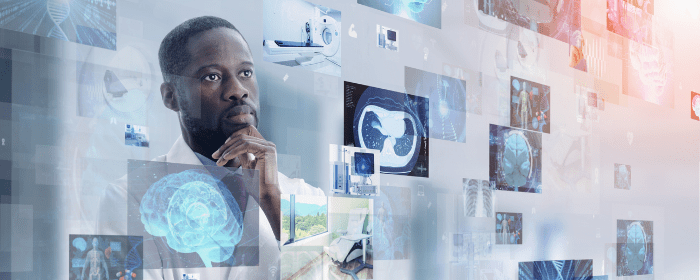

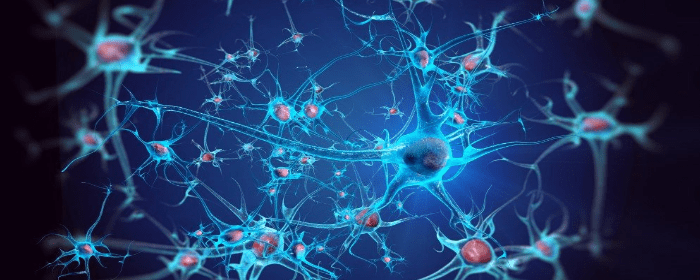
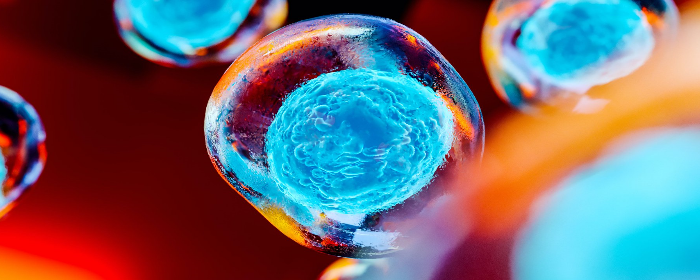
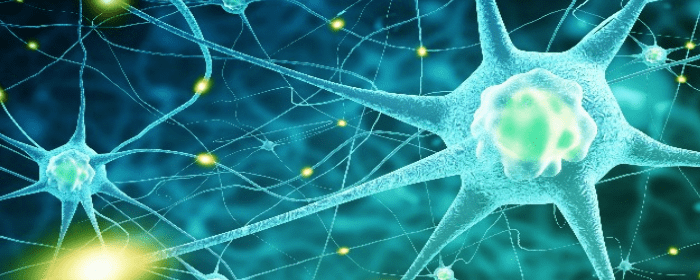
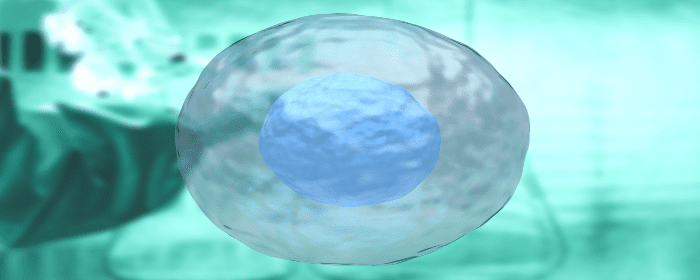
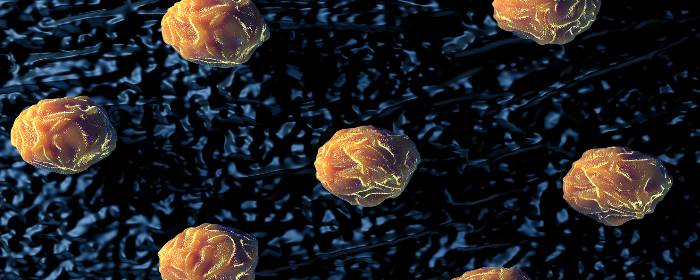
 St. Petersburg, Florida
St. Petersburg, Florida
